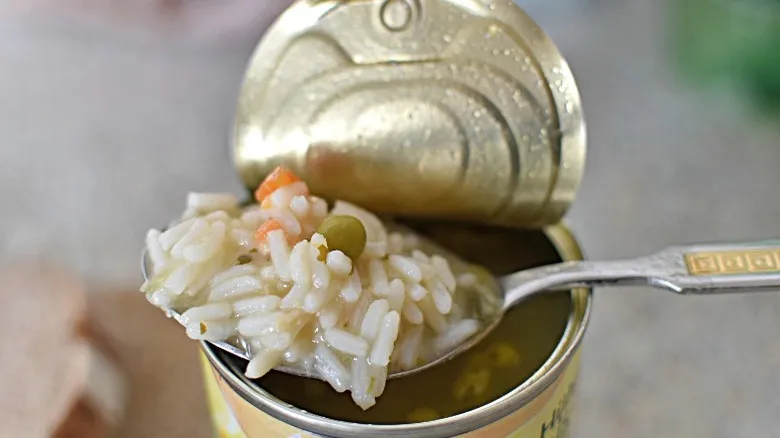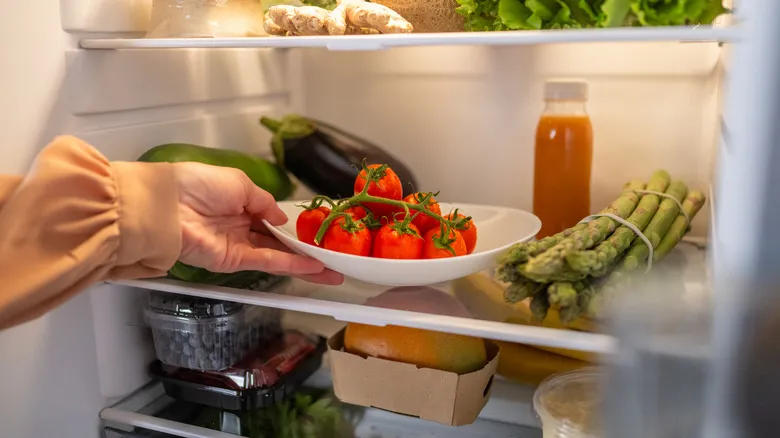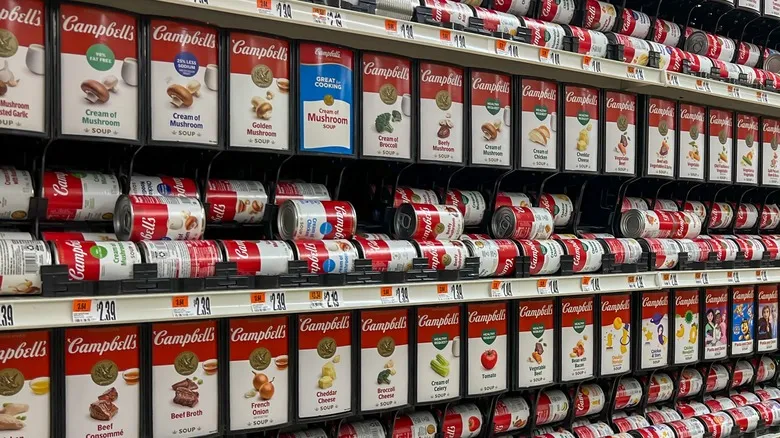When it's not okay to eat canned soup

There are certain situations where it's not just advisable to steer clear of cold canned soup, but discarding the entire can may be the safest option. For instance, consuming from a dented can can pose risks, so it's important to be vigilant. Minor dents are generally acceptable if the can is otherwise intact, but deep dents or those located near the seams, top, or bottom can be problematic. Such dents might compromise the can's vacuum seal, allowing air and bacteria to enter. This can lead to the growth of C. botulinum, anaerobic bacteria that thrive in low-oxygen environments and produce neurotoxins as they multiply. Low-acid foods are particularly vulnerable, and this is not a matter to be taken lightly. If you can press your finger into the dent, it’s too deep.
Even if a can of soup appears undamaged, it doesn't mean it will last indefinitely. Over time, cans can rust, especially those containing acidic foods like tomato soup. Additionally, exposure to high temperatures can be detrimental and increase the likelihood of spoilage—so much so that canned goods sold in tropical regions require specially designed cans.
Typically, you can store canned soups for two to five years in a cool, dry location, away from heat sources like stoves, furnaces, or direct sunlight. If you observe any bulging or leaking, dispose of the can immediately. You should also discard it if, upon opening, liquid spurts out, there’s an unpleasant smell, or if a milky liquid appears when it shouldn’t. By adhering to these safety guidelines, you’ll be well-prepared for any potential apocalypse—at least when it comes to canned soup.
Recommended

Are Radish Greens Edible?

Why You Should Never Serve Frozen Chocolate Truffles

The Right Way To Store Fresh Produce Together

How Long Can You Keep Miso Before It Spoils?
Next up





